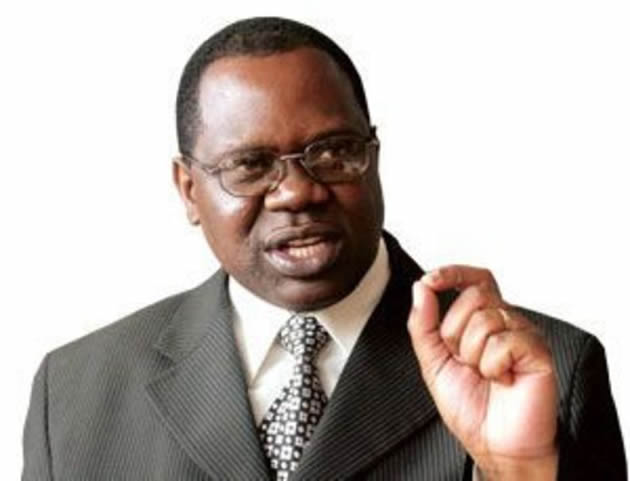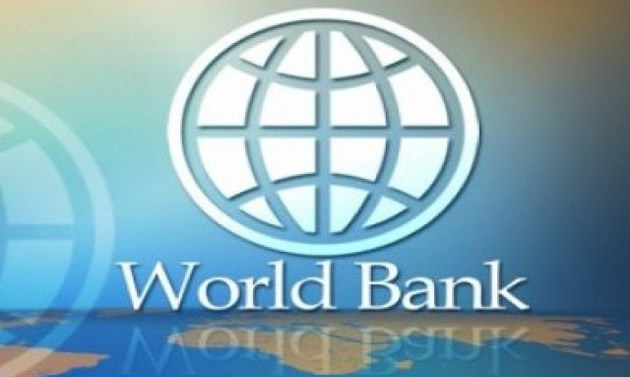My Turn: Opposition: Waiting for grace?

Tichaona Zindoga
Someone brought to my attention, among a couple of some politically nuanced pieces, an article in one of the weekly papers. The piece in question, which may well have escaped attention, is titled “Opposition coalition shaping up” and is written by one Gorden Moyo, the secretary-general of the newly-formed People’s Democratic Party led by Tendai Biti.
The article’s main premise is the formation of the so-called grand coalition because, from the assessment of Moyo; “There is no single opposition party that can singularly upstage the incumbent in Zimbabwe at the moment.”
Moyo gives a harsh diagnosis of the present opposition in the country, saying it is “heavily fragmented, factionalised and factoralised, hence too enfeebled to successfully mount a serious challenge against zanu-PF hegemony”.
He concludes: “That is why we in the PDP are leading the chorus on coalition formation, leadership renewal and ideas-based politics. We believe that through a coalition, opposition political parties can appeal to a broader constituency beyond our individual bases and thereby mitigate the possibility of splitting the opposition vote to zanu-PF’s benefit. The envisaged coalition will provide the electorate with the renewed sense that change is possible and thus encourage opposition sympathisers to vote accordingly.”
It will be remembered that, in recent times at least, it has been Biti who has called the loudest for a grand coalition, beginning that day at Sapes Trust when he made the rare admission that MDC-T had lost the 2013 elections to Zanu-PF due to the superiority of the revolutionary party’s message.
Then he called for “go(ing) back to the value system”, “refocus(ing) on the central strategic objective which is to achieve a new democratic society” and the need to “depersonalise our struggle and focus on issues” and not “focusing on individuals but on issues and systems”.
He said political parties in Zimbabwe must “be alive to the capacity of forming broad or united coalitions or alliances”, noting that Morgan Tsvangirai had lost out on leading the country after the 2008 elections because of the vote-splitting Simba Makoni.
“If they had worked together they would have achieved sufficient numbers to block, to deny Zanu-PF the power to change the Constitution. There is need to have these coalitions. I do not believe that we must form one united party . . . The opposition in Zimbabwe needs to form these alliances and have memorandums of agreement firstly based on values and principles not opportunistic arrangements of wanting to win an election at that time.”
Biti then tried to work out a coalition with Ncube’s MDC, which suffered a stillbirth.
Meanwhile, Morgan Tsvangirai was calling on opposition people and outfits to come under his “big tent” with him at the apex.
Deals, dysfunctional deals
As we speak, a lot of effort has been expended to forge alliances and coalitions in the opposition.
The Biti-Ncube one failed to take off, even though both sides are optimistic and receptive to the prospect.
More interestingly, a band of Zanu-PF rejects purporting to be led by former Vice President Joice Mujuru and going under the banner of People First, has apparently been involved in negotiations with Tsvangirai’s MDC-T.
The two sides appear to agree on the principle of a union but they have been marked out by disagreements over positions.
A lot of hints have been dropped lately, over this sticking point, with Tsvangirai directing a lecture to a People First man, Dzikamai Mavhaire recently, that positions should not matter but the people.
Not that Tsvangirai is sincere.
For all we know he won’t be party to anything that does not have him as the leader.
You see, Tsvangirai and his camp are super-confident that they have the numbers and even have the temerity to claim that they are the most popular party in the country.
(Without, of course, telling us how this same most popular party is not the ruling party in Zimbabwe.)
So, the deals or agreements to deal can only be dysfunctional and, no prizes for guessing — the opposition may remain divided and factionalised and whatever Gorden Moyo sees in the opposition, and lose yet again to Zanu-PF.
And what could be the problem?
Ask Tendai Biti: during his address at Sapes, he said; “And part of the problem with the post liberation opposition movement is that at the time when these organisations were formed, they were a salad and did not actually say, as all organisations do, what really are our values and rules which bind us. So if you are a Christian Democratic party, you know that Christianity is important. So if anyone is going to misbehave or breach the 10 commandments, there is a line you can’t cross but we did not do that because we were a broad church. We had people from the right alongside those from the left, which is a contradiction in its own terms.”
If Biti had his way, the opposition would build a coalition of champions, winners and performers.
“One of the greatest crimes of African politics is this arrest by politics of personalities, big name people and deification of leaders. Instead, the opposition needs to build a team that creates a chemistry of these individuals.”
But then, isn’t it the defect in the current opposition?
Waiting for grace?
Of course we are not talking about a certain woman of that name.
We are talking about the grace of God.
In light of the above failures, the church has been roped in to create commonality among the opposition personalities and platforms.
One Bishop Sebastian Bakare, a retired Anglican cleric, is leading what has been dubbed the National Convergence Platform (NCP) which shall convene by the end of this October.
Leaders of this idea claim that it is “a non-partisan platform that is open to all Zimbabweans at home and abroad and its broad objective is to enhance national convergence and the restoration of national unity, cohesion and tolerance to Zimbabwean society.”
“It seeks to mobilise and engage Zimbabweans, at home and in the Diaspora, around the political, economic and social issues that cry out so loud as to constitute what we call today, national convergence. It is a platform for Zimbabweans to engage in a frank national conversation about the challenges that our country faces with a view to coming up with a national plan of action towards addressing the same.”
Is it merely coincidental that politics is mentioned first ahead of economic and social dimensions that those behind NCP seek to address?
The NCP is primarily political —much like the national working people’s convention that brought out the political MDC at the turn of the millennium.
And Gorden Moyo demonstrates this when he rhapsodises thus: “We hope all opposition political players will emerge from the NCP more convinced of the need for a grand coalition.”
It is a world, he envisages, where all opposition parties will stop criticising each other in public; revoke and withdraw and settle court cases against each other, all with the NCP “as a glue for the opposition without labels of being large or small, technocratic or lay and so forth.”
Somebody say “Amen”!







Comments